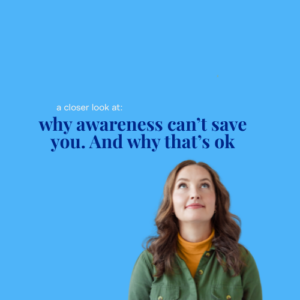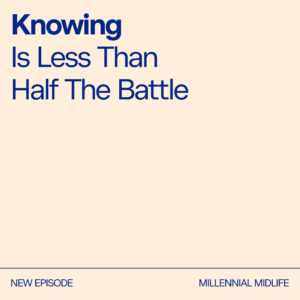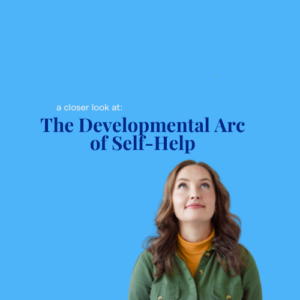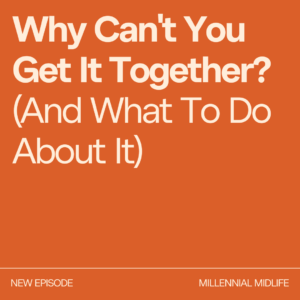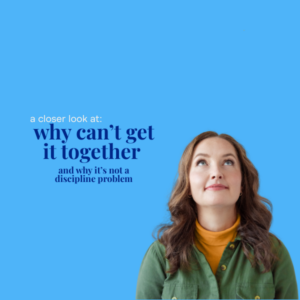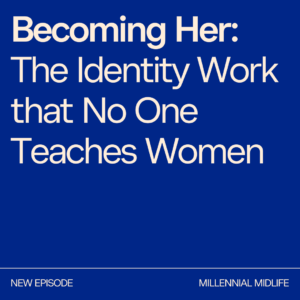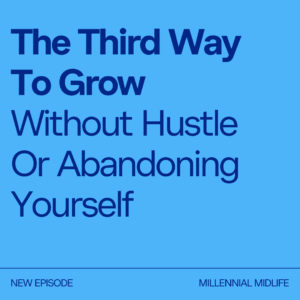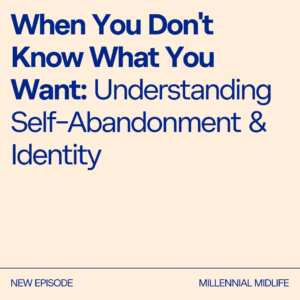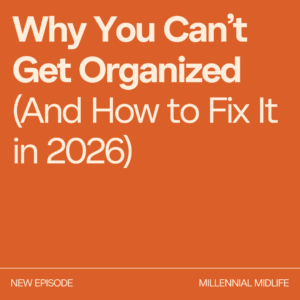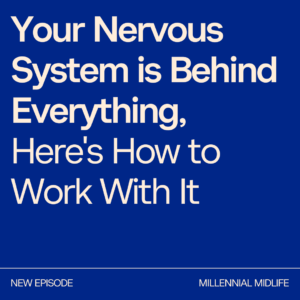Cecelia Baum Mandryk (00:10.478)
Hi, hi and welcome to Calmer Conversations. I’m Cecilia, your host. Today I wanna talk about why you might have a hard time feeling your emotions. But first let’s do a moment of grounding and centering wherever you are, whether you’re driving or walking, even if you’re lying on your couch listening to this, you may just settle into where you are. You might even give yourself a wiggle or a shake. Maybe take a few intentional breaths. Make that sigh or the sound for the exhale and see if you can come into the present moment.
You might not close your eyes if you’re driving or walking, but you might see if you can bring your focus closer to yourself. If you might close a couple of those open tabs in your brain. If you might give yourself permission to be present right here to listen to this instead of multitasking and trying to do many things at once. And then you might also ask yourself, why are you listening to this? Maybe even what do you need today? Or how do you want to feel as a result of this episode? Maybe do you want to walk away with something?
tidbit piece of information. I know that when you take the time to center yourself, to bring yourself into regulation, not only are you more open to the information here, but you’re also training your nervous system to come back to regulation. We’ve been talking about resilience this past month in my group coaching space, and it’s been so enlightening. And in fact, going to do, I’m going to record an episode on resilience, but I want to get my thoughts together a little bit more about it before I do that. And today I just want to share
people come to me and I talk a lot about processing emotions, right? If you’re not new here, even if you are new here and you’ve seen me someplace else or heard me someplace else, you probably know that that’s something I talk a lot about. And in fact, how processing your emotions is this superpower and it is an avenue to shifting who you are and how you are in life. And so that oftentimes our habitual patterns, whether they’re thinking patterns or their actual physical action habits in our life are tied to
our emotions and to unprocessed emotions or emotions we’re ignoring or we’re not paying attention to. And that processing them and becoming aware of them is one of the most important parts to kind of liberation in your life, honestly. Like whether it’s emotional liberation or mental liberation or like a larger scale human liberation that this is part of it. And oftentimes people kind of lament the fact that they’ve made it this far in their life, whatever this far means, whether it’s like 25 or 75.
Cecelia Baum Mandryk (02:39.564)
and they haven’t learned how to do this. And I wanna say that first, you’re not alone if you haven’t learned how to do this. I think it’s probably a lot like personal finance. Most of us didn’t learn how to do that in school, although I think they teach it more frequently now. Most of us don’t understand statistics, right? We’re enumerate in many ways because we never learned it, right? No one ever taught us how to do it. And this became really evident to me recently. And so often,
I’m gonna use examples with my kids all the time here, like the trucks and how my son is really, or my middle kid is really into trucks. And so I see trucks more because he wants to, and that’s really a proxy for our reticular activating system in your salience network. And how when you ask yourself questions, like I wonder how many trucks I’m gonna see today, you in fact see more trucks because you have an expectation of seeing trucks. And so for instance, if you ask, like, what do I love about my partner?
You in fact see more things that you love about them because that is how you’ve primed your brain and what you’ve told it is important. So we have an example about emotions and why you probably struggle to feel your emotions. So we moved recently, again, if you’re paying attention, and we’re in this new area, which isn’t actually that important, although I could tell many stories about that as well. this, we’re here and one of the neighboring towns was having an all-town yard sale.
And that didn’t mean that everyone was coming to the same location, but it meant that lots of people were having yard sales on the same day. I will admit that I’m not a big yard sale person. My brain doesn’t do well with having to sort through lots of stuff to find things. I prefer a very well curated shop, but that they can be fun. And that since we just moved, there are odds and ends that we’re kind of looking for that we don’t have. And so I mentioned this to my kids that we were going to go do this first. They got really disappointed. But then I pointed out that they’d
disappointed for really no reason because they don’t even know what a yard sale was because then I explained it and they got excited. They got excited because of the treasure hunt of a yard sale. You go and a yard sale is kind of like a wrapped present. Many yard sales on one day is maybe like many wrapped presents. You don’t know what you’re going to find. There’s almost infinite possibility before you set out on this adventure to the yard sales.
Cecelia Baum Mandryk (04:59.97)
This was our third stop of the morning. And we got to this place and they had a bunch of books out and they had some toys out. And they also had some like kind of random candy things. I’m not sure why, but those were there as well. And up until this point, I had found one thing. I think my husband had found one thing. My kids really hadn’t found anything they liked. And in fact, the first stop, they were very disappointed because they hadn’t found something they liked. Second stop.
also didn’t find anything. We’re at the third stop, right? So this is not a lot of driving, but a lot of in and out. If you have young kids, you know, the car seat thing, like it seems to take forever to get them in and out of the car. And so we’re there and there’s nothing, right? Actually, it’s not true that there’s nothing. We found three or four books for them. But my older kid, my oldest kid was really disappointed. She got really frustrated and angry.
that she hadn’t found anything, which maybe all of us were feeling, right? We had, we’d started this day with all these wrapped presents and we were so excited at what might be in them. And with each one we unwrapped, we found out that it wasn’t something we wanted. Now, it is not, may not be surprising to you that my approach to this would be to acknowledge her disappointment and help her feel it and see it and even vocalize it, right? Name it for her.
Maybe even say like I’m feeling disappointed too and we can feel disappointment and that disappointment in fact is part of life Instead what happened was she expressed this disappointment and then got kind of said she wanted one of these candy things and I said that they were not available for us to take and The person at the yard sale was visibly uncomfortable with her reaction and handed them to her handed one to her and one to my middle kid Thereby giving them this dopamine hit
showing them that their disappointment was too big for an adult to handle, making it kind of seem dangerous. And I know that this feels like a really big leap, right? But if an adult in your life as a kid can’t handle something like you being disappointed, you internalize that you cannot handle your disappointment. That in fact, disappointment is bad, it’s dangerous, and it’s something you need to avoid.
Cecelia Baum Mandryk (07:19.542)
And so in that moment, not only was she robbed of the chance to feel and explore her own emotions, but she was taught that her own emotions are dangerous and there’s something to be avoided, which is what most of us learned as we were kids. Most of us learned from parents who were uncomfortable with their emotions or teachers or other adults who are uncomfortable with their emotions and thereby uncomfortable with our emotions, that emotions…
are not something that we can tolerate. They are not something that we can be with, that they are something that we need to avoid and we quickly need to get away from them and create something to distract ourselves. We need to avoid them in some way, right? And this way my daughter got this candy thing and it gave her the dopamine hit, right? She got the cheap dopamine hit of getting this thing. She couldn’t unwrap it and then didn’t even like the thing that was in it, which is a whole other story, but she
She was taken away from her experience. She lost the opportunity to get to know herself in that moment because she was taken out of her disappointment. And so if you do this very quickly with your emotions, right, you feel disappointment, you feel anger, you feel frustration, you feel grief, and you immediately turn to ice cream or chips or shopping or gambling or smoking or whatever it is that you turn to, a glass of wine, exercising, cleaning, something to create a different emotional experience within you.
This is something that you were taught, right? This is a habit that you are in. You have an emotion, you notice it, then you try to escape from it. You can learn something different. You can learn how to notice your disappointment and actually be with it and get to know yourself in that moment, create safety in the emotional experience because the emotion itself is not dangerous. Disappointment, while uncomfortable, it was uncomfortable for my daughter in that moment, is not dangerous. She is not in danger. Disappointment is not going to hurt her.
In fact, it is more dangerous for her to avoid disappointment because that actually does hurt her, right? That creates energetic stagnation in your body. It can lead to illness. can lead to all different kinds of things. It also leads to the inability to be with yourself through hard times, which life is going to have ups and downs. And so this is why you probably have trouble with things like disappointment or anger. You learned that they were not okay, that you perhaps did not have the capacity to handle them. So.
Cecelia Baum Mandryk (09:37.538)
The thing that you can do, what you can take away from this is the next time you feel a hard emotion, and hard can be any emotion, right? Some people have a really hard time with joy or love or excitement. So it doesn’t necessarily need to fall into that like quote unquote hard area on an emotion’s wheel. But when you notice it, when you feel disappointment, you can do what I would have done with my daughter and did do in the car, is you can say you’re feeling, and you can name it. You’re feeling disappointed. It’s really uncomfortable to f-
feel disappointment. You might even feel like this is dangerous. Disappointment feels like and describe what it feels like in your body. You might remind yourself that it’s safe to experience disappointment. You might remind yourself that this is an energetic and chemical thing that is happening within your body, but it is not dangerous for you and that you are safe and that you can take a few breaths. You can use a tool like tapping.
You can rock yourself, can give yourself a big hug, and you can remind yourself that while this is uncomfortable, it is not dangerous, and this is part of the human experience. And you can ask yourself, why am I feeling disappointed? What is the story that I’m telling myself? And if you’re ready, and when you’re ready to move on, you might ask yourself what else is true.
And in doing this, you will start to give yourself the skill of being able to process emotions, being able to move through them. I will say that you can do this. And if you want help doing it, I have a course. It’s called the five minute shift. It’s a mini course. You can actually just like skip through all of it and do the five minute processing video. And I will hold your hand through this process for whatever emotion you’re feeling. I know many of my clients that are either in other programs or just take this course.
Take the course and they tell me that they use it repeatedly, sometimes daily, when they have hard emotions so that I can help them. You have my voice holding you. You have my, there as a sort of parent to help you through the process of feeling an emotion. Because the more you get to know yourself in disappointment, the easier these things will be for you and they will not throw you. You will still have them, you’ll still be disappointed, but they will not throw you in the same way. All right.
Cecelia Baum Mandryk (11:47.97)
Thank you for tuning in. Let me know, you might even let me know what your hardest emotion is. What’s the hardest one for you to feel? Thanks for being here and I’ll see you the next time I see you. All right, bye.




